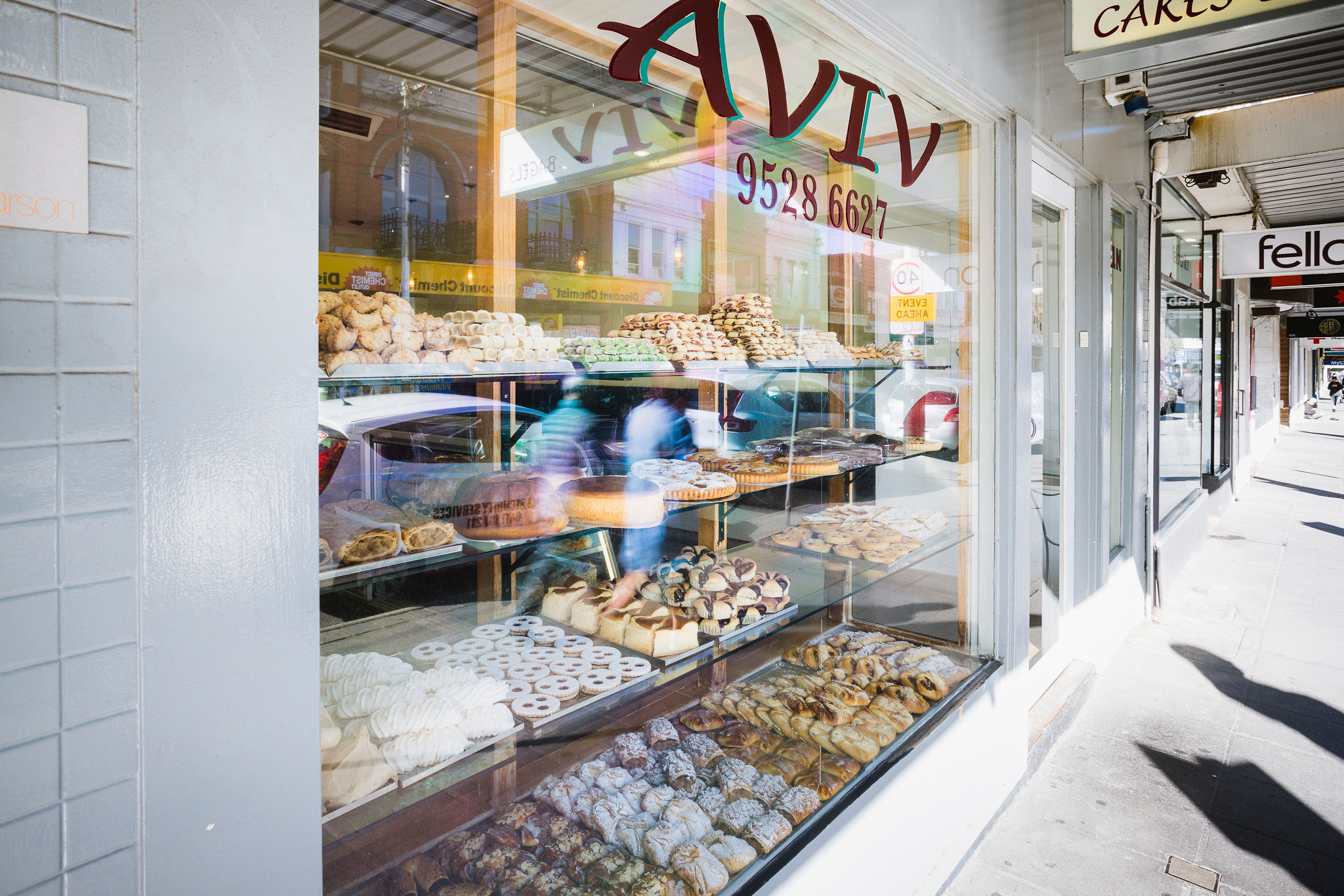Take a peek behind the scenes of some of Glen Eira’s long-running businesses. Get to know the owners and their stories and learn how Glen Eira’s streetscapes have changed over time in our digital exhibition Talking Shops: Glen Eira Stories.
Aviv Cakes and Bagels
est. 1950s, same owners since 1988
Address: 400 Glenhuntly Road, Elsternwick (formerly at 412 Glenhuntly Road, Elsternwick)
From an interview with Kira and Herbert with Aron Lewin and Tatiana CC Scott from Tales of Brick and Mortar in 2021. Interview edited by Aron Lewin. All Photographs © Tatiana CC Scott. Developed for Glen Eira City Council as part of the Talking Shops project.
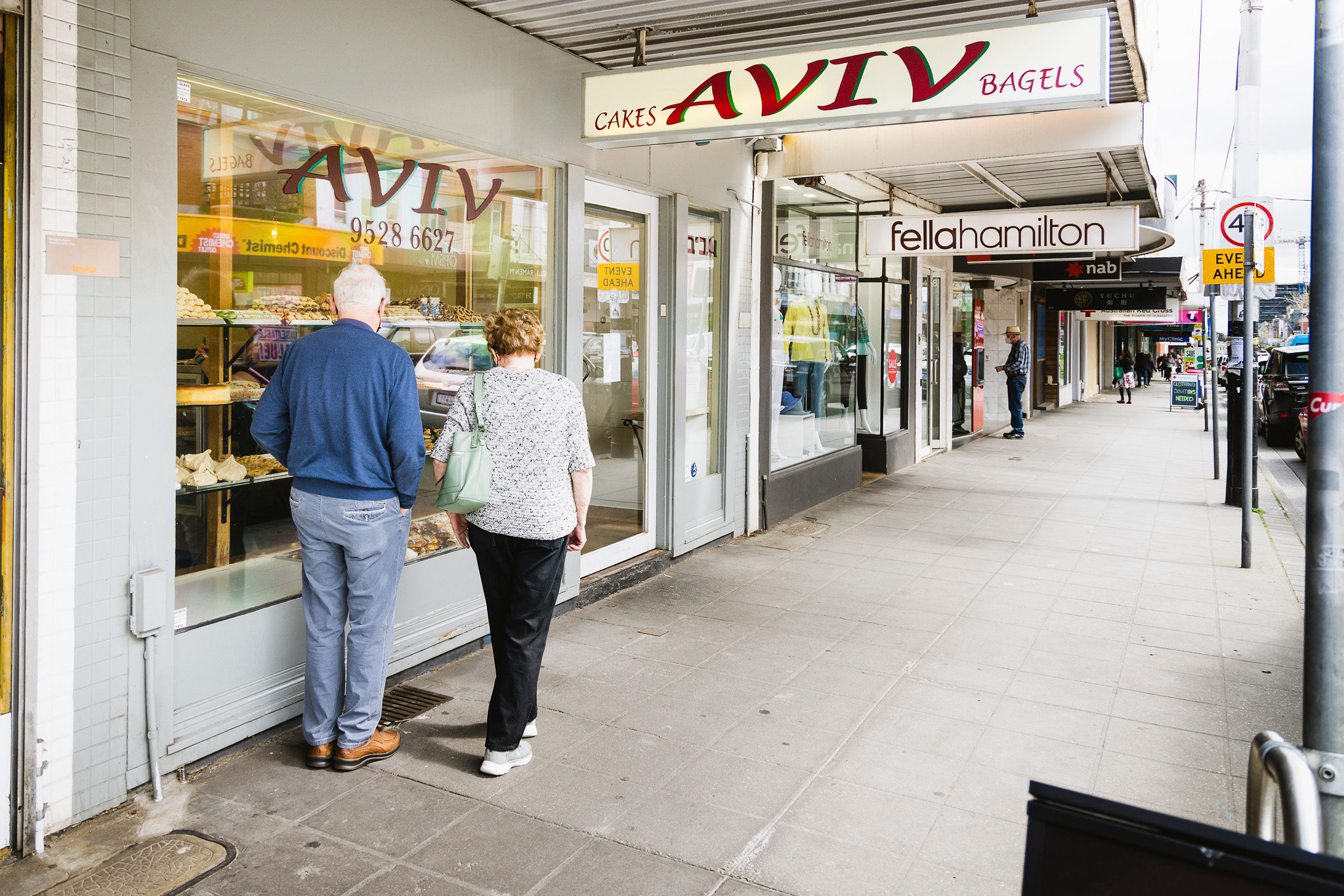
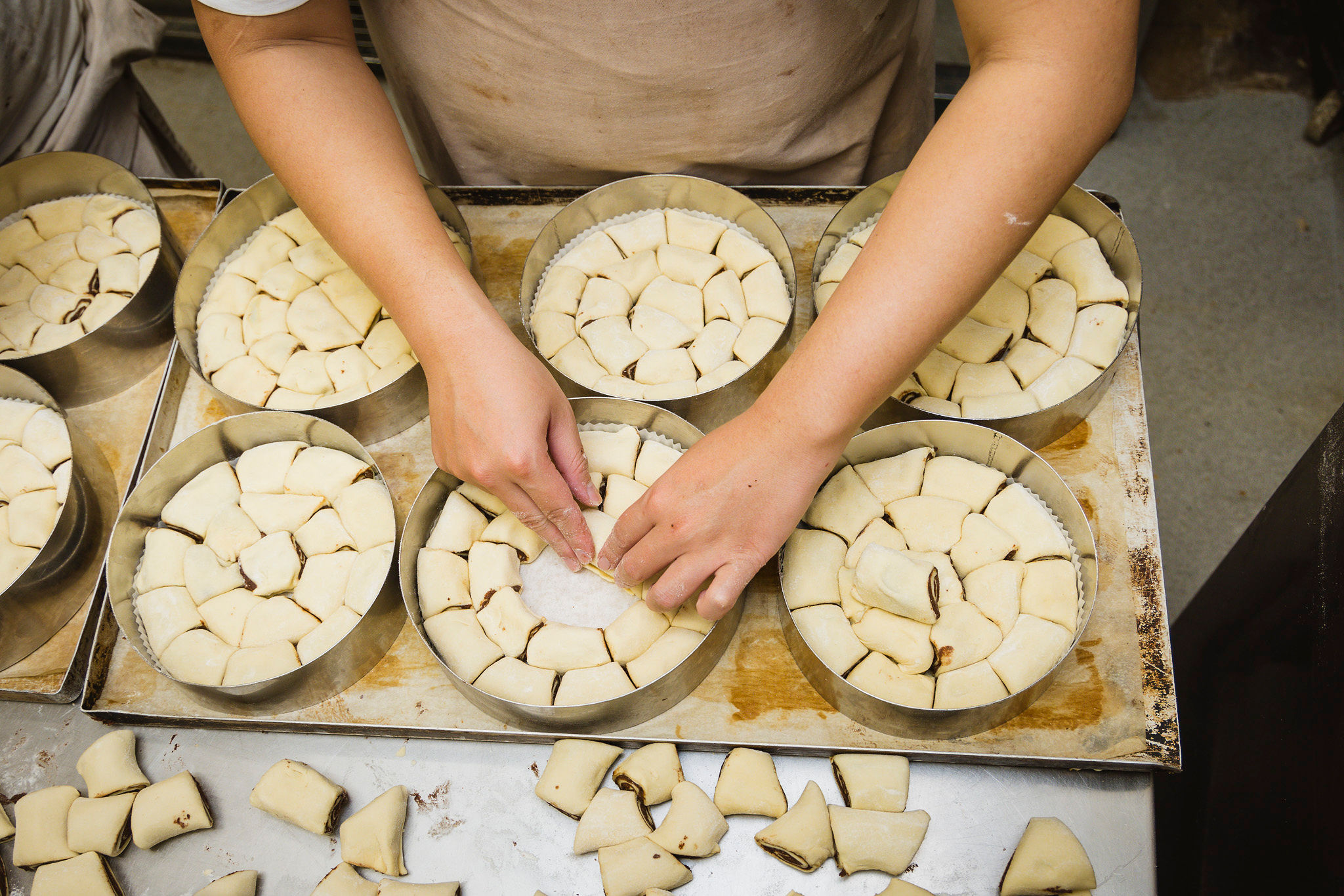
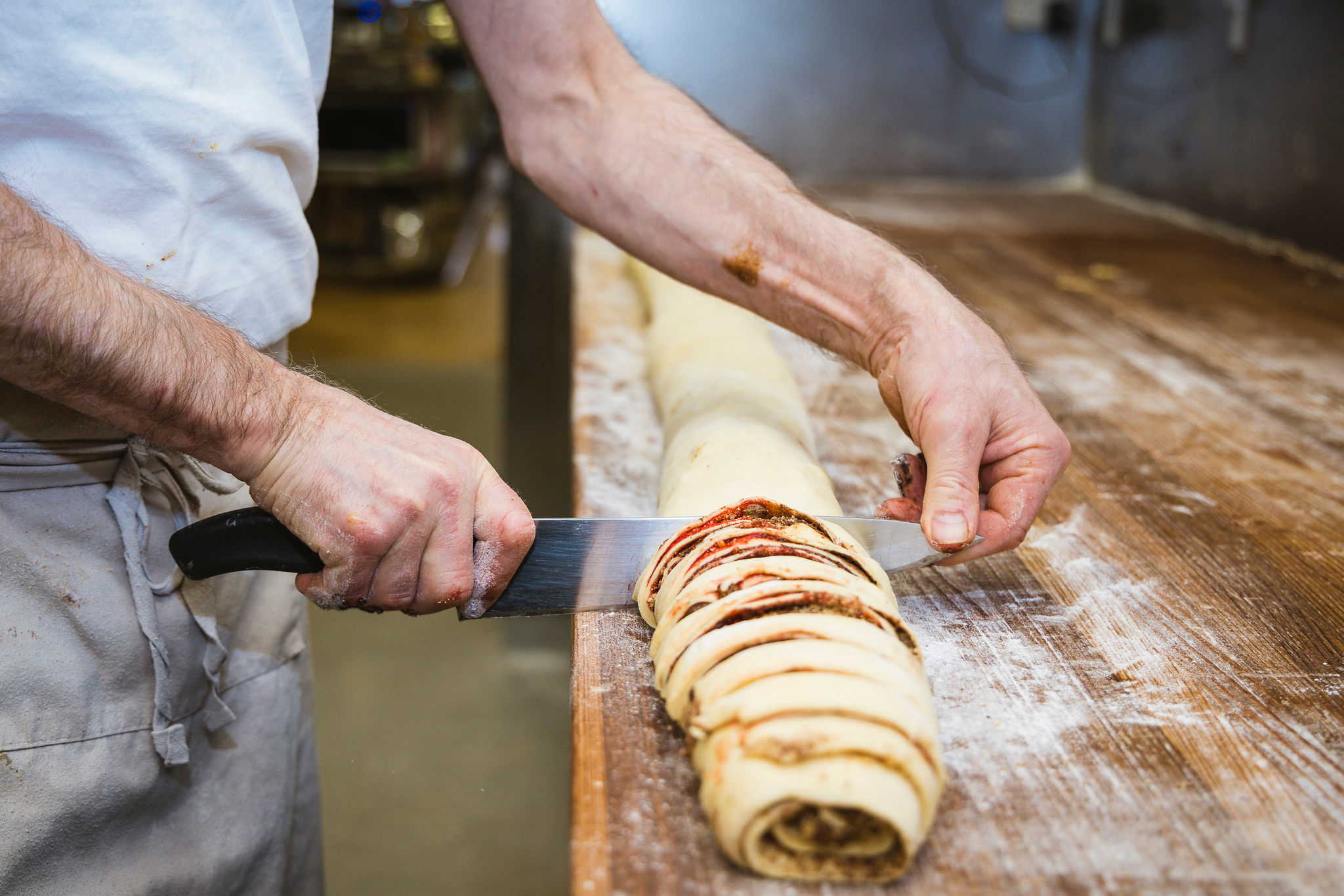
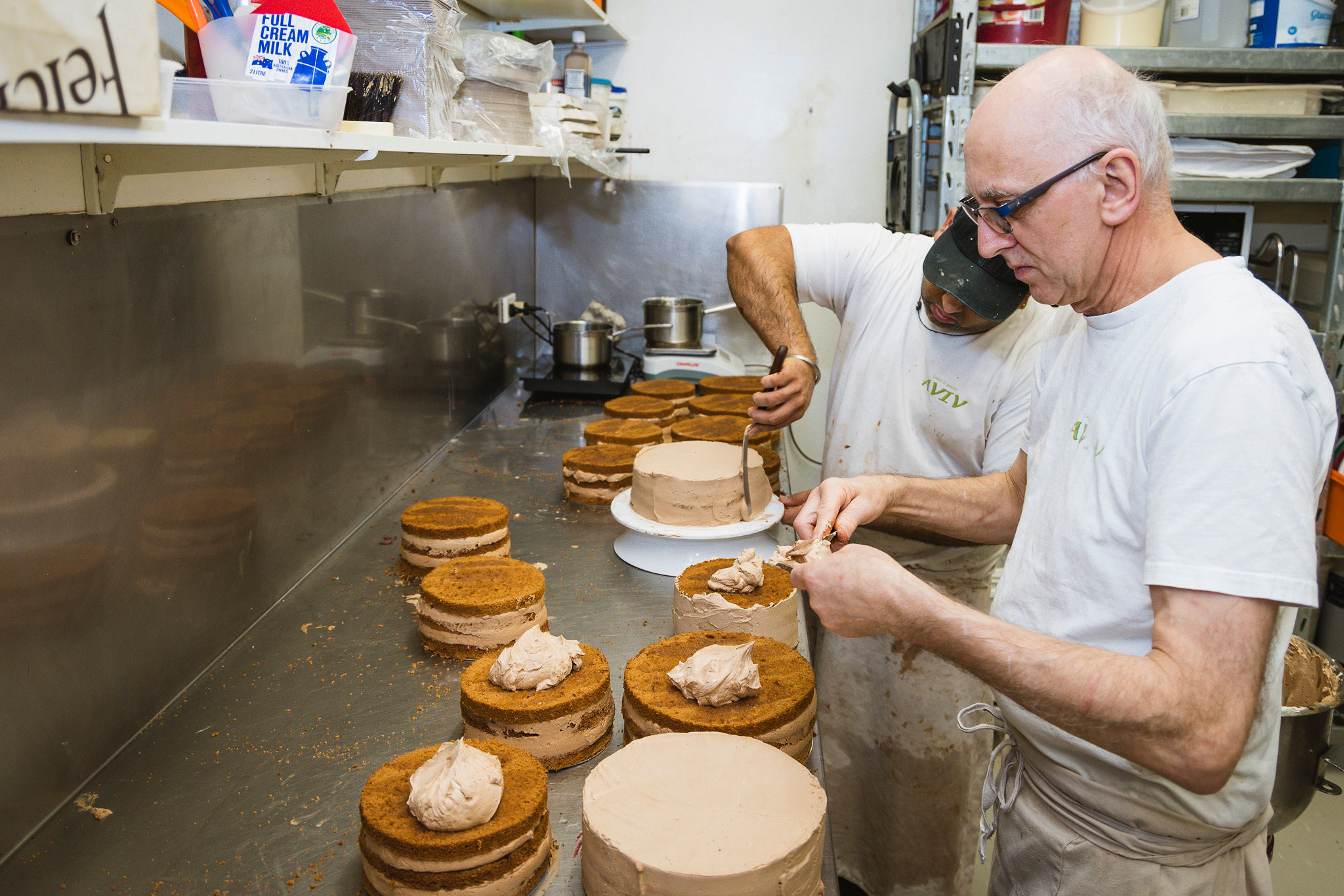
(Herbert) I’ve always liked cooking and baking.
My parents had a dairy farm, and my seven siblings and I worked there. I wasn’t an outside person, so I was always cooking for the family while they were busy. My mum was a good chef who taught me how to make all sorts of things.
At 15, I left school and started my apprenticeship to become a baker and pastry chef. I trained in a bakery where we made bread, Danish pastries and challahs for the week. Challahs – known as Zopf – are a big Swiss thing, and we eat it on Sunday for brunch rather than on Friday.
Just about every lunch table in Switzerland has a Zopf on the table on Sunday mornings.
I studied in Switzerland, then wanted to travel more.
I went to America after I finished my apprenticeship and compulsory military service, and worked in an international hotel when I was 21. I wanted to see more of the world, so I travelled to Australia around 1982. I worked at The Regent Hotel and The Windsor which is where I met my wife, Lee.
(Kira) My mum works in the business as well. She was at the front of the shop in the beginning, and now does most of the business admin.
(Herbert) Compared to Switzerland – which was quite strict and rigid at the time – Australia felt relaxed and free.
I loved being in Australia.
I lived in Elsternwick and would regularly walk past Aviv.
Besides Frank’s Bakery on the other end of the street, Aviv was the only place that made and sold European bread at that time. I liked that the shop looked and felt very European. Back then, it was next door and much smaller – 1/3 of the size it is now – and the kitchen was tight as well.
Cake Master was started by the Mihaly family in 1968 and became Aviv in 1981 and was run by the Gordon family before we bought the business in 1988. Back then, Aviv mostly sold bagels, challahs, a few Danishes and traditional baked goods for special occasions. There weren’t many cakes and other types of products, so we introduced a range of cream cakes, Black Forests, vanilla slices, chocolate pear cakes and everything else that’s typically in our cake fridge.
We introduced it bit by bit, so Aviv didn’t change overnight. We tried new things and – when they went well – we’d keep it. Having said that, the bagels and babkas pre-date us, and they’re still big sellers. The previous owners gave us the key recipes, and we’ve continued on with them.
(Kira) It’s a mix of things that were here before us, and the European cakes and pastries that Dad brought in.
It’s a nice amalgamation of culture – which also reflects the area.
(Herbert) When we came into the business, it was mostly Jewish customers.
Now, I’d say it’s 50/50.
I think it’s partly because the area has changed over the years, but it’s also because word had spread. A lot of our older customers were little kids who would come to Aviv with their parents. Now they come in with their own kids.
(Kira) We’re also well known for our bagels, and I think what helps to make them stand out is that they’re all handmade. Other places use machines to roll out their bagels, but we still do them all individually, which I think is quite special.
(Herbert) We start at 4am, and the first bagels are ready at 7am. It gets harder and harder to get up in the morning, but I’m still in the kitchen, and I still enjoy baking and making things. We’re also still introducing new cakes. Things are always changing, and there’s more competition around, so we have to adapt and keep up with what’s happening. It also helps to keep things interesting for me and the chefs.
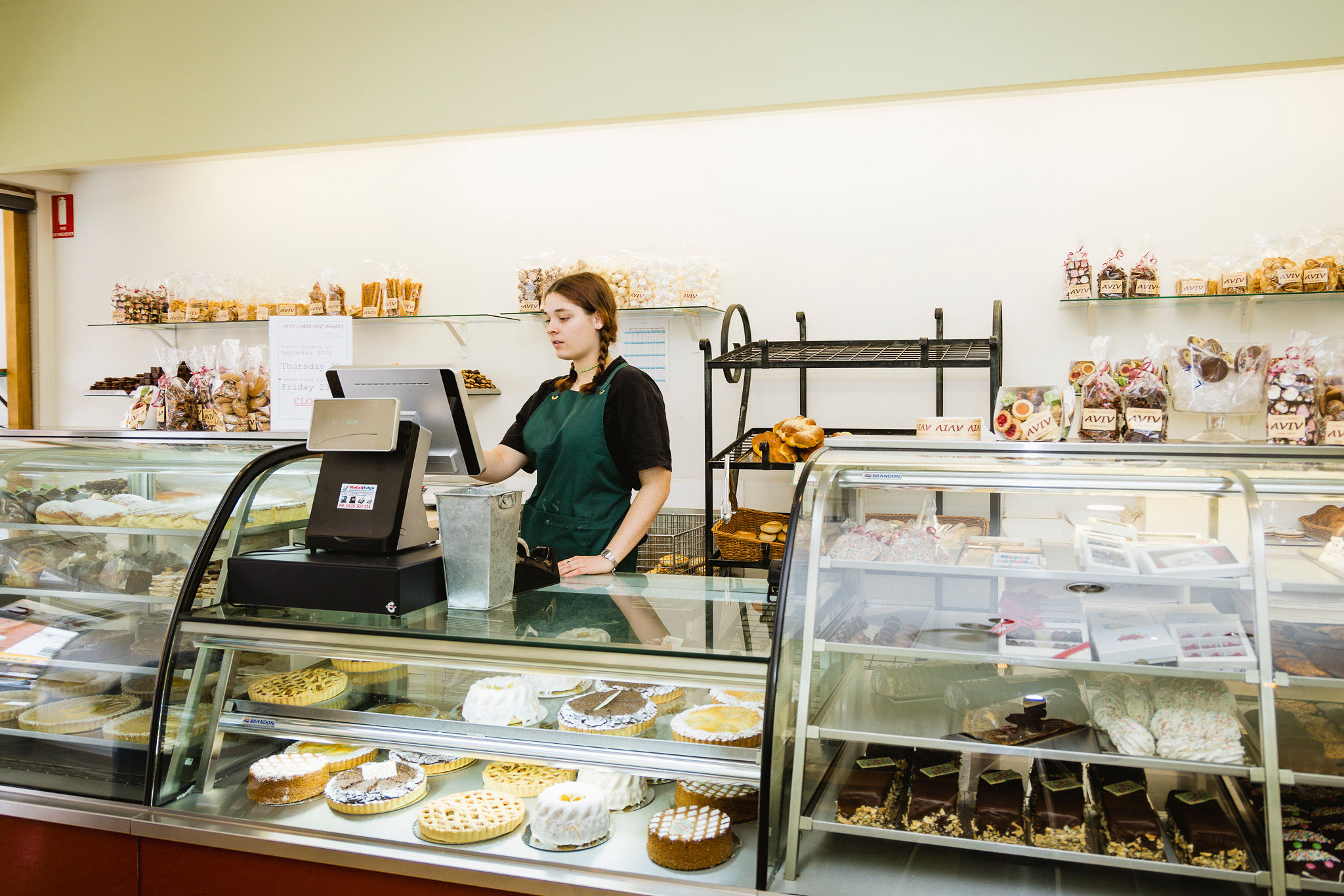
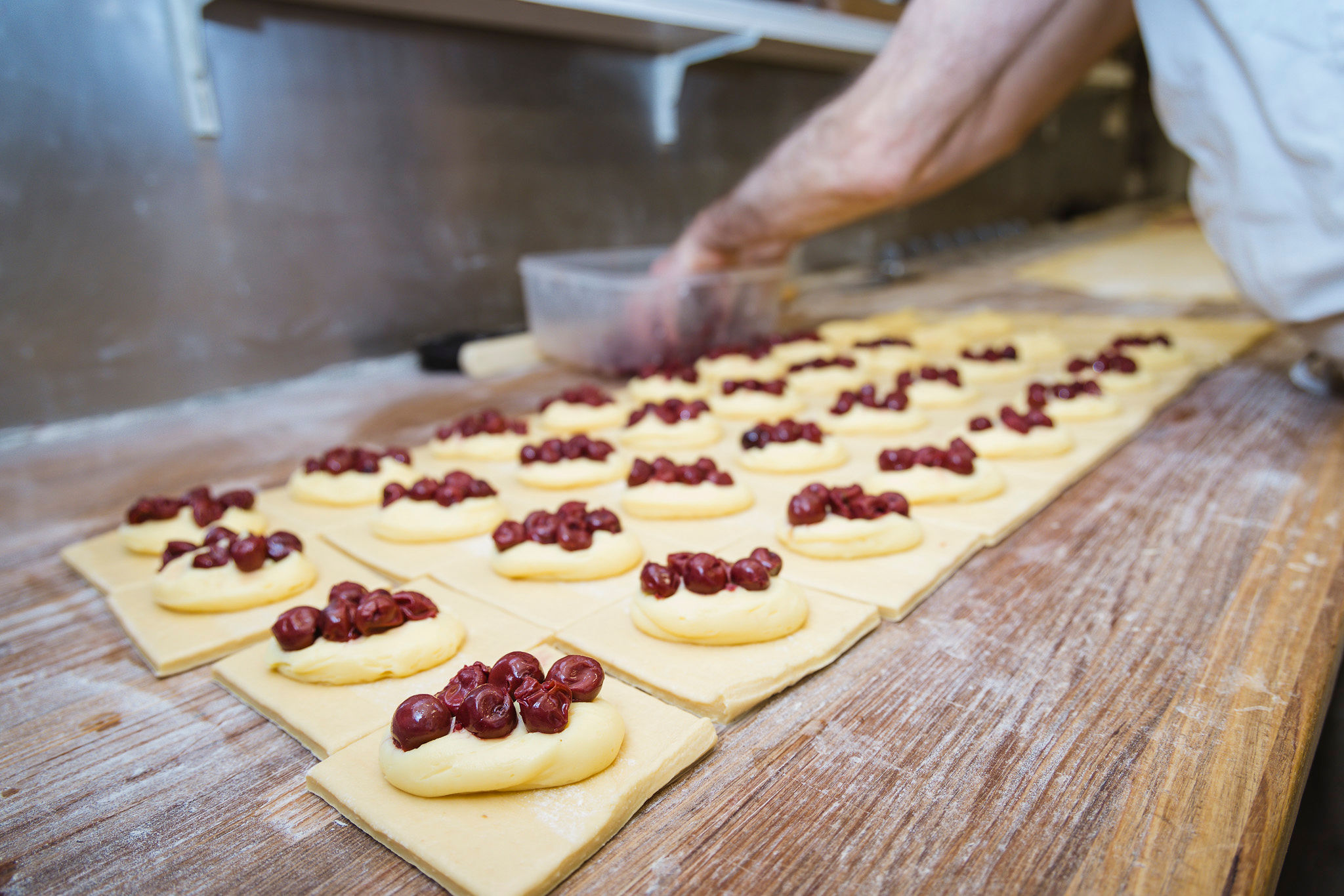
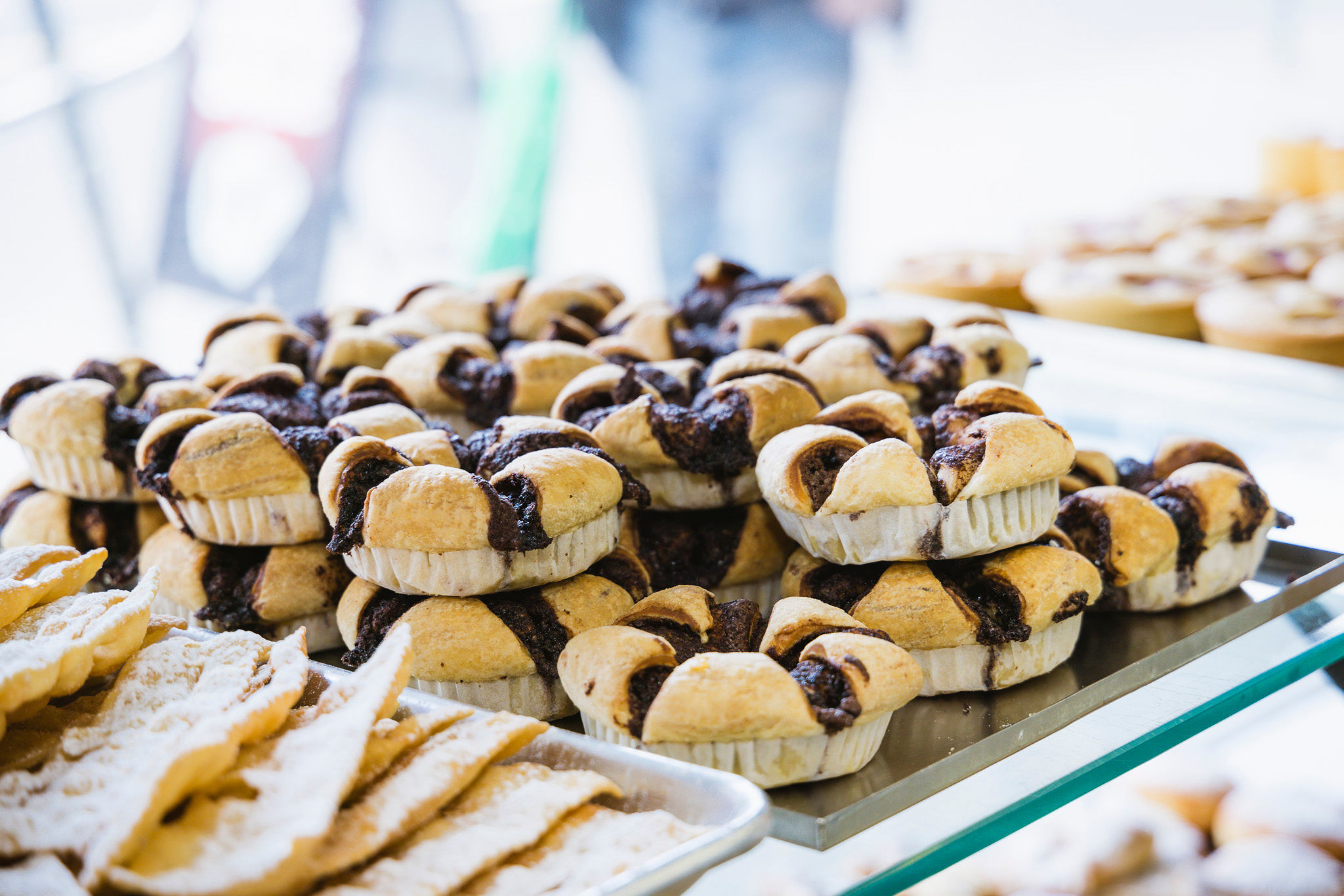
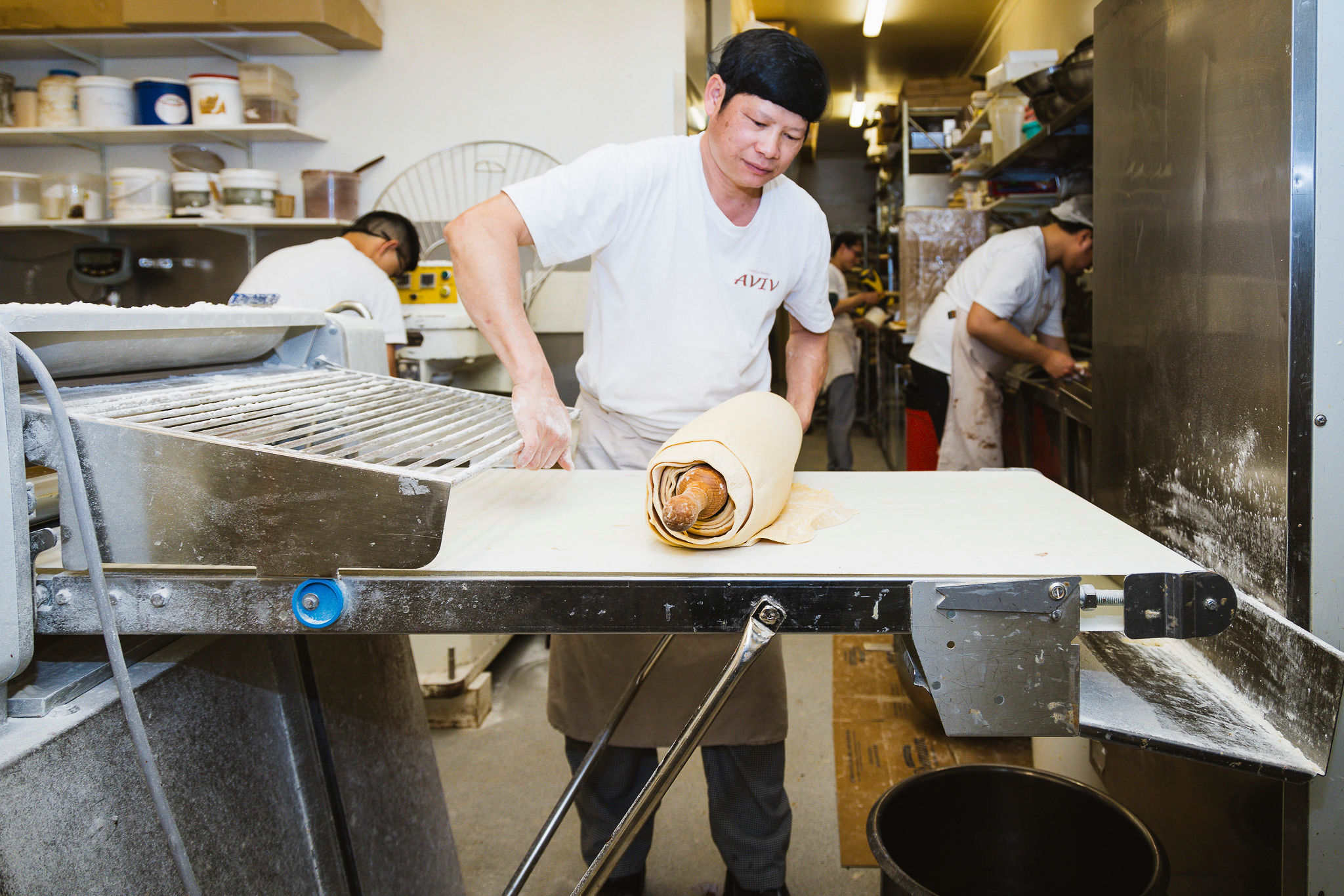
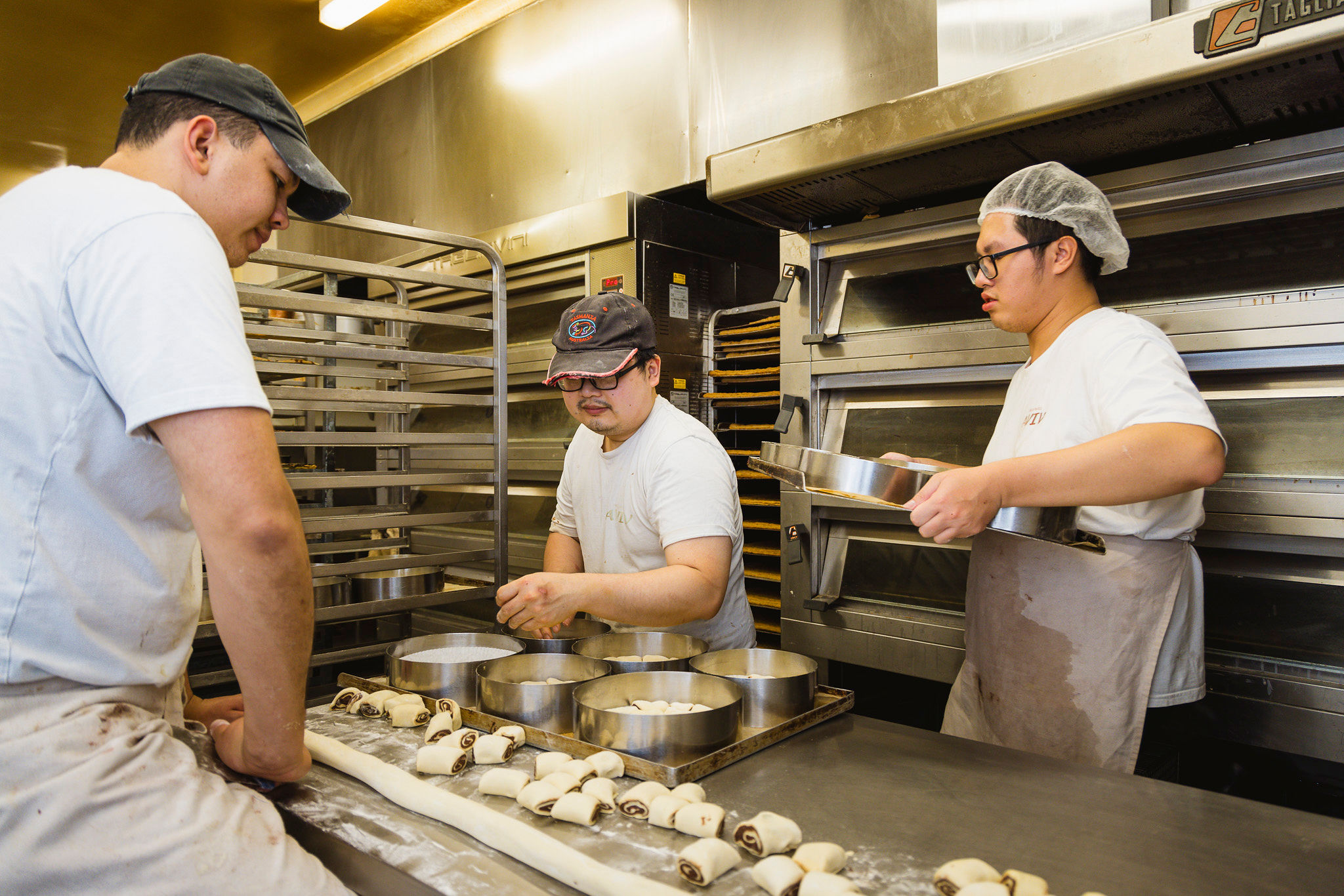
The cultural element is also big thing for us. Jewish culture is very into food, so we do something to cater for every festival, like honey cakes for Rosh Hashanah [Jewish New Year] and donuts for Hanukkah [Festival of Lights]. We hear about how our cakes help to connect families over the Jewish festivals, and – over the years – I’ve definitely learned more about the Jewish tradition
Fridays before Shabbat is one of our busiest days, but Saturday and Sunday can be really busy as well.
(Kira) I’ve worked here for almost 10 years, and my brother Felix works here as well.
I was 15 when I started.
I’m at the front, and Felix is at the back.
I didn’t really grow up in the kitchen, but we were always here helping out after school, packing things, stacking biscuits and so on.
I like the community here, and the staff, who I’ve built a strong connection with.
A lot of the girls at the front came in when they were kids, and they now work here.
I grew up here, so it’s like my second home.
(Kira) Because we’ve been here for so long, people have grown up with Aviv.It’s become a part of their lives.
Although our product line changes and evolves, the business has fundamentally remained the same since the beginning, which I think people enjoy.
Especially during COVID-19 restrictions, the business was quiet during the beginning. Then it started to pick up slowly.
Customers would talk about how going for a walk, getting a pastry and chatting with us was a highlight of their day.
(Herbert) I’ve enjoyed running a family business, and working with Lee, Kira and Felix.
I still get a sense of satisfaction when something comes out of the oven perfectly – that feeling of doing and creating things – and hearing that the customer enjoys whatever it is we’ve made.
It’s still a process of trying something – seeing if it tastes nice – and figuring out how the customer feels about it.
(Kira) I don’t think dad will ever stop working in the kitchen.
(Herbert) I’ll be here for a while longer, and what happens after, time will tell.
